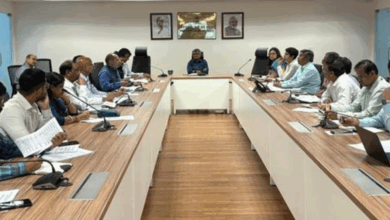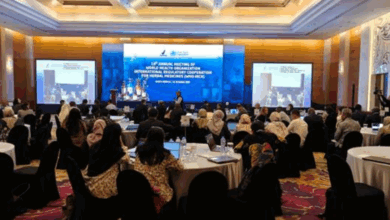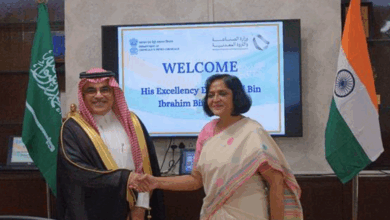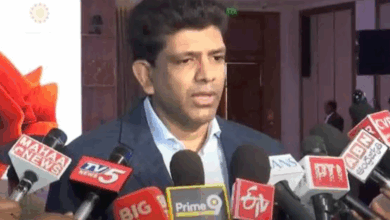Inspire faculty from NIT Srinagar working on marriage of material science & electrochemistry for sustainable energy
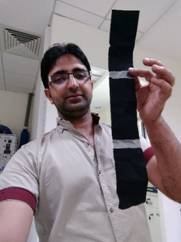
Dr. Malik Abdul Wahid from National Institute of Technology (NIT) Srinagar is a recipient of the INSPIRE Faculty award instituted by the Department of Science & Technology, Govt. of India working in the area of energy research towards marriage of material science and electrochemistry to develop sustainable energy and affordable energy sources. His focus is mainly on electrodes and electrolyte material electrochemistry.
The major components of Dr. Malik’s current research interests include material research on the electrode development for Sodium-ion (Na-ion) battery, which offers a 20% cost reduction compared to present Lithium-ion (Li-ion) technology. He has been focusing on the two aspects, i.e., cost reduction and efficiency elevation. For the former, he is currently focused upon stabilization of a combination of carbon-based anodes and organic cathodes. While for the latter, he is exploring the new cathode chemistries. Two of his recent projects are development of layered high capacity cathodes by suitable doping that offers high capacity and stability and Sulphate-phosphate hybrid cathodes. Similarly, Sodium (Na) metal anode hosts with heavy Na deposition capacities are being developed. The mentioned projects are a new direction to the field of Na ion battery research.
Along with his collaborators at IISER Pune, Dr. Malik developed a Si-Phosphorene nano-composite material for efficient Si stabilization as an anode in Li-ion battery, which was published in the journal Sustainable Energy Fuels. The obtained material delivers five times more capacity than carbon-based electrodes and can be fully charged in about 15 minutes.
His team at NIT Srinagar employed a simple hydrothermal strategy to synthesize reduced graphene oxide (rGO) wrapped high aspect ratio 1-dimensional SbSe nano-structure. The work has been published in the journal Chem Phys Chem. They achieved a decent performance with the reversible capacity of 550 mAhg-1 at a specific current of 100 mAg-1which implies that 5 to 6g of synthesized material would run a high range android cell phone.
“INSPIRE Faculty award is a prestigious award and should be distinguished from a regular faculty position in any institute. To honour the positions, I have co-founded a center of excellence (COE), namely, the Interdisciplinary Division of Renewable Energy and Advanced Materials (iDRAEM) at NIT Srinagar. The COE primarily worked with my & collaborator’s research grant, but recently institute promised funding support. Additionally, with the possible support of MHRD (under the FAST scheme), the center is set to blossom and cater to some high-quality research.” Dr. Malik said.
At present, this centre co-founded by Dr. Malik caters to the research in the advanced areas of energy storage and super-hydrophobic surfaces for water harvesting, besides focusing on the local resources of J&K. Dr. Wahid has already published a paper on the application of walnut shell derived carbon as Na ion battery anode applications (ACS Omega, 2017, 2 (7), pp 3601–3609). The material has a lot of scope to be employed for advanced electrode applications. Similarly, waste dairy products and aquatic flora of Dal lake appear to have appropriate morphology to be employed as precursors for the electrode grade carbon. Energy storage activities under iDRAEM partly focus on the synthesis of high-quality carbon materials from local precursors. Lotus stem is very promising in being porous to be employed as precursor for electrode grade carbon material. It also undertakes challenges of developing high-quality hydrophobic surfaces by replicating the hydrophobic leaf structure of local plants of DAL lake.



